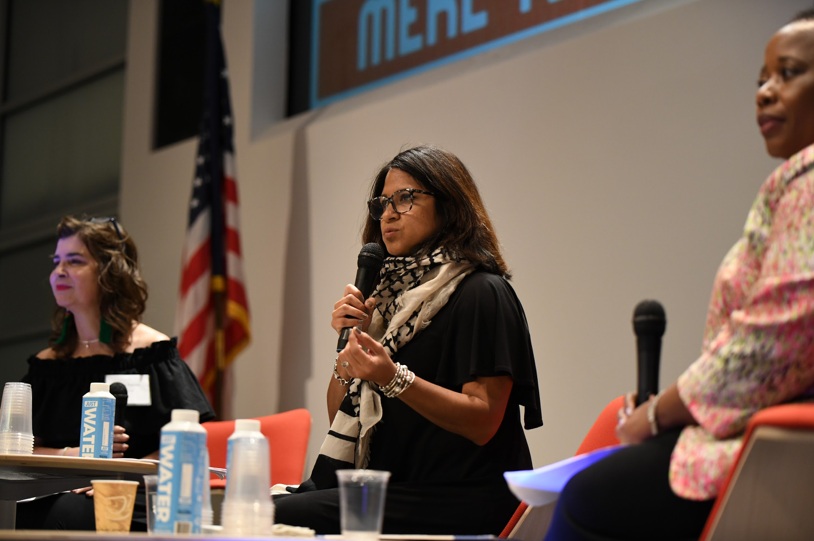Makadii, Hola, Hello! We are Adeline Sibanda of the International Organization for Cooperation in Evaluation (IOCE), Silvia Salinas of the Latin American and Caribbean Monitoring, Evaluation and Systematization Nework (ReLAC) and Veronica Olazabal of The Rockefeller Foundation, here to discuss decolonization of data and tech in evaluation!
Why colonization matters today
When we think about colonization, we usually think about history, but colonization is part of our realities today. Colonization implies unequal access to technology and modernity. For example, between 2006-2018, while access to the internet in Latin America doubled (20.7% to 50.1%) the digital gap widened dramatically across the same regions. Another example is the use of averages which hides colonialism and can be misleading. A 2017 study on maternal mortality revealed the enormous gaps in different countries. For example, in Bolivia maternal mortality among indigenous women is 4 times higher than the national average.
It will become an even greater problem
With the exponential growth in the use of data science and machine learning for analysis, we can expect these inequalities and power imbalances to grow, especially since advances in data and tech in the global north are much more than in the global south. Tools such as algorithms and data analytics might be used to further put the haves and have nots in big boxes that further divide them. Psychometric tests for work, college etc. may lead to discrimination of certain groups of people, criminalizing poverty. And for the global south where those who have power possess technology and eventually own the data, they may share the data of the most vulnerable, putting them further in harm’s way.
What should evaluators do?
Hot Tip 1: Participatory data collection and analysis: We need to engage around how indigenous people can lead, not just be part of the data analysis process. They need to input into what they want analyzed and how they want to use the data.
Hot Tip 2: Participatory tech development: People who are the intended users of the technology should co-create the technology because they know the context, the culture and most importantly, their community, so they can incorporate their own ways of knowing and values.
Hot Tip 3: Trust, value, empower and invest in southern ideas, methodologies, products, and people. And while we do so, it is crucial to be aware and conscious about authorship and intellectual property. We have a long history of expropriated ideas and distrust rooted in unequal power relations that we need to reverse. And this of course has to do with the system, but we are all the system and we can all make a difference.
Rad Resources:
- Weapons of Math Destruction by Cathy O’Neil – a helpful resource on the risks in using algorithms. Here is a review.
- South to South Initiative (S2SE) – Spearheaded by the regional evaluation associations S2SE aims to elevate indigenous knowledge, theory and capacities of the global south,
- “The role of new information and communication technologies in equity-focused evaluation: Opportunities and challenges” in Evaluation

The American Evaluation Association is celebratingIntegrating Technology into Evaluation TIG Week with our colleagues in the Integrating Technology into Evaluation Topical Interest Group. The contributions all this week to aea365 come from ITE TIG members. Do you have questions, concerns, kudos, or content to extend this aea365 contribution? Please add them in the comments section for this post on the aea365 webpage so that we may enrich our community of practice. Would you like to submit an aea365 Tip? Please send a note of interest to aea365@eval.org. aea365 is sponsored by the American Evaluation Association and provides a Tip-a-Day by and for evaluators.

Totally agree! Another great resource is “Algorithms of Oppression” by Safyia Noble. Technology is not as agnostic as we think it is.
Thanks for this suggestion!